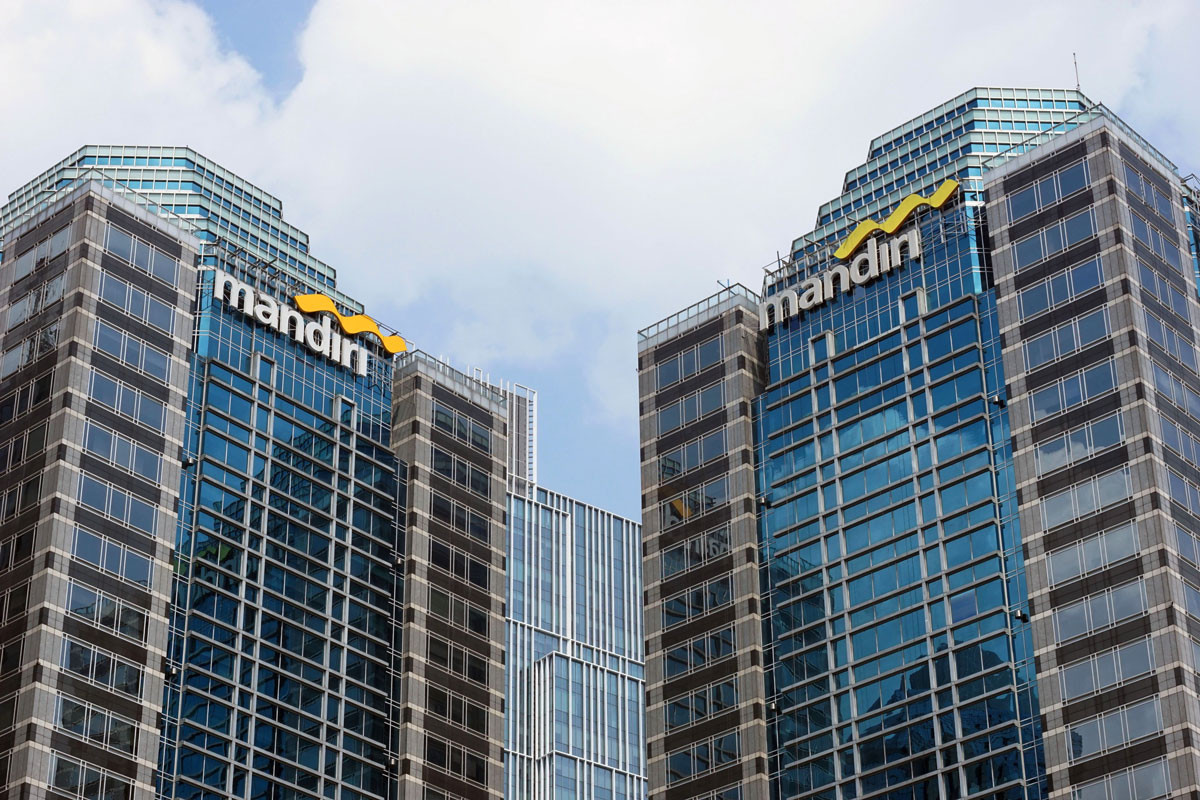Popular Reads
Top Results
Can't find what you're looking for?
View all search resultsPopular Reads
Top Results
Can't find what you're looking for?
View all search resultsBank Mandiri profit down 30 percent in first nine months
Change text size
Gift Premium Articles
to Anyone
S
tate-owned Bank Mandiri, the country’s second-largest bank by asset value, saw its profit contract by double digits as of September despite booking growth in loan disbursements.
The bank’s net profit declined a steep 30.7 percent year-on-year (yoy) to Rp 14.03 trillion (US$956 million) during the first nine months of this year from Rp 20.25 trillion in the same period last year.
“With the conclusion of 2020’s third quarter, Bank Mandiri has its focus on two main things: pushing for the national economic recovery and sustaining a healthy growth,” Bank Mandiri’s newly appointed president director, Darmawan Junaidi, said during a virtual public expose on Monday.
Darmawan said the bank would prioritize maintaining loan growth while pursuing efficiency measures and accelerating digital innovation to sustain growth.
Bank Mandiri saw loan disbursement grow 3.79 percent yoy to Rp 873.7 trillion at the end of the third quarter. At the same time, the banking industry saw 0.12 percent yoy loan growth as of September, according to Financial Services Authority (OJK) data.
The country’s banking industry has continued to weather the impacts of the health crisis this year. As loan growth cools, the COVID-19 outbreak has disrupted business activities, resulting in weakening demand and purchasing power that has adversely affected loan repayments.
Amid the increase in loan growth, Bank Mandiri’s ratio of non-performing loans (NPLs) – the number of loans in default as a percentage of total loans – stood at 3.33 percent as of September this year, an increase of 80 basis points from 2.53 percent in the same period last year.
The figure is higher than the NPL rate of the banking industry, which stood at 3.15 percent in September, OJK data show.
Bank Mandiri aimed to keep its NPL rate between 3 and 4 percent by year-end, while loan growth was targeted at 3 to 4 percent and net profit at Rp 16 trillion, its president director announced.
“We are optimistic that we can maintain the growth according to the target but, indeed, the challenges are quite big,” Darmawan said.
With the rise in NPLs, Bank Mandiri set its provision expense at Rp 15.7 trillion as of September 2020, a 52.8 percent increase from the same period last year.
Bank Mandiri managing director and chief risk officer Siddik Badruddin said the bank projected the expense to reach Rp 18 trillion to Rp 21 trillion by year-end.
“We want to set aside provisioning expenses under a more conservative policy, which means that for the high-risk portion of the loans we restructure due to COVID-19, we allocate provisions,” Siddik said during the same event.
As of Oct. 20, the bank has approved loan restructuring for 536,000 borrowers, amounting to Rp 119 trillion, Bank Mandiri corporate secretary Rully Setiawan told The Jakarta Post on Friday.
The OJK recently announced that it would extend its loan restructuring program, issued to cushion the impact of the pandemic on the country’s borrowers and banks, until March 2022.
Bank Mandiri has also disbursed loans under the national economic recovery (PEN) program following the government's Rp 15 trillion fund placement in the bank.
It reportedly disbursed Rp 42.6 trillion worth of loans to micro, small and medium enterprises (MSMEs) and non-MSMEs as of Sept. 30. The manufacturing industry received the biggest portion of the disbursed funds, followed by trade.
Meanwhile, in contrast to the cooling loan growth, Bank Mandiri’s third-party funds rose 14.9 percent yoy as of September this year to Rp 1.02 quadrillion. During the period, current accounts booked the highest growth at 33.1 percent, followed by time deposits and savings accounts.
The banking industry’s third-party funds also grew a whopping 12.88 percent as of September to Rp 6.65 quadrillion, according OJK data.
However, Bank Mandiri’s net interest income fell 4.1 percent yoy to Rp 42.2 trillion in the first nine months of the year, while total operating income contracted 3.1 percent to Rp 62.9 trillion in the same period.
Read also: Bank Mandiri to benefit from state-owned sharia bank merger: S&P
Willinoy Sitorus, deputy head of research at Trimegah Sekuritas Indonesia, said that Bank Mandiri’s performance in this year’s third quarter was “beyond expectation”, especially in terms of lowering provisioning.
He noted that the bank’s provision expenses between July and September stood at Rp 5.4 trillion, 20.6 percent lower than the total between April and June.
“The decline in the provision reflected improving asset quality along with the economic recovery in the third quarter,” Willinoy told the Post on Monday.
Willinoy said he expected the bank would see a fast recovery in 2021.
“However, this depends on our economic recovery process,” he added.
Mirae Asset Sekuritas Indonesia research and development manager Lee Young Jun stated that Mandiri’s loan growth was weighted by an unfavorable economy that impacted the corporate segment and a decrease in credit card and mortgage loans in the consumer segment.
“This year, we forecast [Mandiri’s] earnings to come in at Rp 17 trillion; next year, at Rp 20 trillion,” Young Jun told the Post in email correspondence on Tuesday.
The bank’s shares, traded on the Indonesia Stock Exchange (IDX) under the ticker code BMRI, was up 0.87 percent against the previous trading day to Rp 5,825 apiece, on Tuesday at 10:21 a.m.
The bank’s shares have lost 24.1 percent of their value throughout the year.










